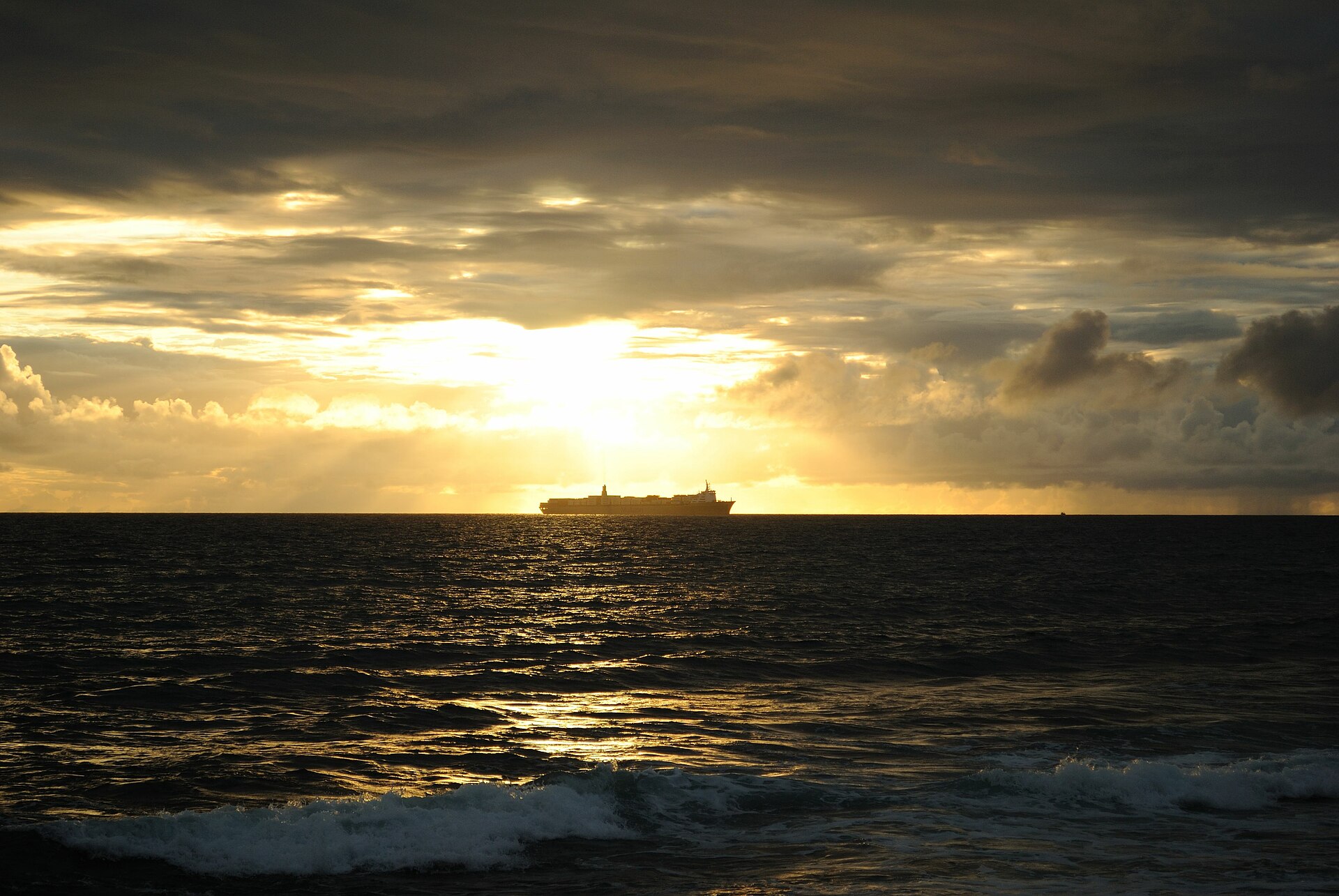
Ships traveling near China’s coast are affecting air quality in mainland China, especially during the warmest months. Credit: Wikimedia commons/ Daniel Ramirez/ CCA BY 2.0
Featured Research
Research roundup: Record high heat
Monday, 22 July marked the hottest day ever recorded on Earth. Catch up on the latest research in extreme heat, from rising baselines to soaring maximums on land and in the sea.
[“Our hot future has arrived. Are we prepared?”][heat waves stress world’s road, rail infrastructure][Poor and nontraditionally-housed people face highest heat exposure][heatwaves increase fire, police department calls][where heat hits in the Northern Hemisphere][what we know about heat waves: a review][rising sea surface temperatures cause marine heat waves][carbon neutrality would quell increase in marine heat waves]
Ships at sea decrease air quality in mainland China
Air pollution from offshore ships increased ozone levels in coastal Chinese cities in 2017 by up to 22%, a new study finds. The effects of the shipping emissions were amplified on more polluted days, especially during warmer months. [JGR Atmospheres research]
Atmospheric geoengineering could increase cold-related deaths
Stratospheric aerosol injection is a geoengineering technique that injects sunlight-reflecting particles high in the atmosphere to lower surface temperatures. Stratospheric aerosol injections in Beijing in the 2060s could reduce heat-related deaths among the elderly, but also increase cold-related deaths in the city’s aging population, new research finds. Prior research from GeoHealth found that heat-related deaths will overtake cold-related deaths by the end of the century, especially among older populations. [Earth’s Future research]
Surface water and groundwater have declined in the Indus Basin over 20 years
The Indus Basin covers over one million square kilometers in India, Pakistan, Afghanistan and China and supplies water to approximately 300 million people. Over the last 20 years, farming, human development and climate change have caused dramatic declines in both surface water and groundwater in downstream areas. In upstream areas, declines were more likely only caused by climate change. [Water Resources Research research]
Human activities and climate change have tanked water levels in the Yangtze River
Water levels in the Yangtze River have decreased dramatically since the late 20th century. New research finds that human development, industrial activities and climate change have all contributed to runoff declines in the watersheds that surround the Upper Yangtze River. [Earth’s Future research]
Old-growth trees are more water-savvy than younger trees
Older forests are more resilient to water shortages than younger forests, new research finds. Researchers used tree ring records and remote sensing to track old-growth and secondary-growth trees in an experimental forest in Oregon. They found that older trees stored more carbon and were more resistant to drought. [AGU Advances research]
###